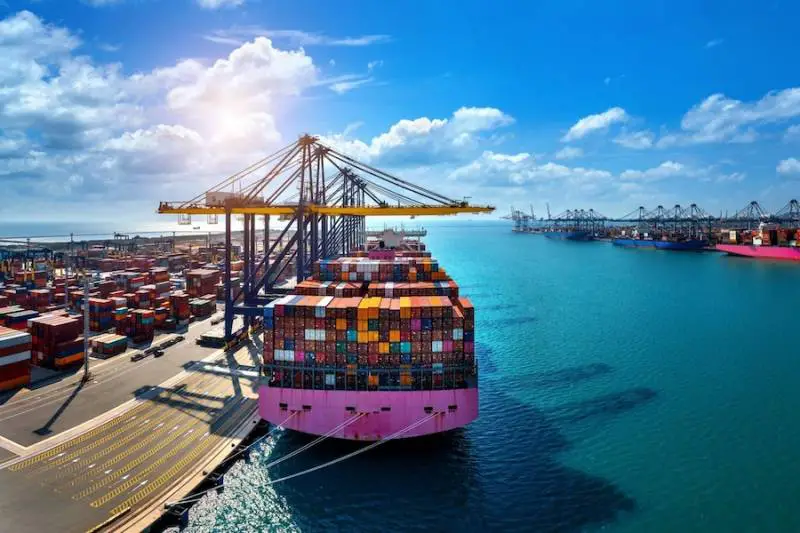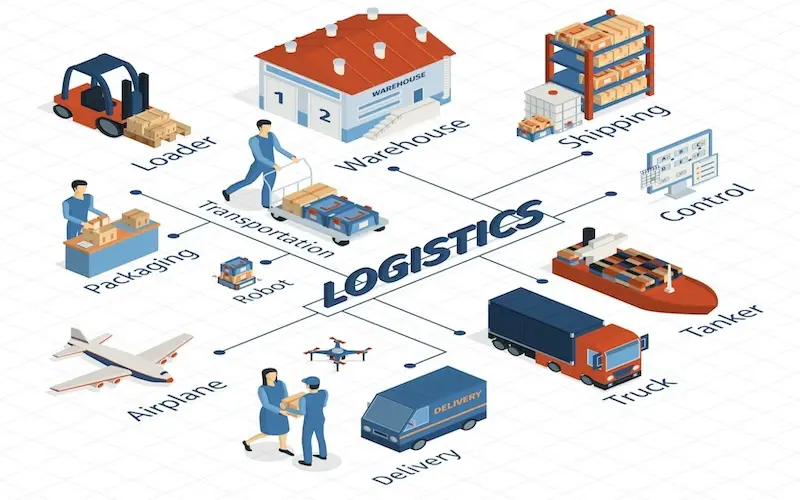What Lies Ahead for The Logistics Industry? - Trends to Watch in 2024

Ah, the logistics industry—that ever-evolving, fast-paced world where goods are moved from point A to point B with dizzying efficiency.
As we step into 2024, the industry is at a crossroads, with technology, sustainability, and consumer demands reshaping the landscape.
So, what can we expect to see happening in the logistics industry this year going forward?
Trends in the Logistics Sector to Watch This Year

1. AI and Automation: Embracing the Tech Revolution
First up, let's talk tech. Logistics software has been revolutionary in this industry, leading to greater efficiency and accuracy, and there are more tech trends on the horizon too.
Artificial intelligence (AI) and automation have been buzzwords for a while, but 2024 is set to see them move from the sidelines to the center stage. We're talking about smart warehouses equipped with robots that can pick and pack orders at lightning speed.
And let's not forget self-driving trucks! These bad boys could revolutionize long-haul transportation by reducing human error and increasing efficiency. Plus, they don't need coffee breaks – a definite plus.
2. Sustainability: More Than Just a Buzzword
Sustainability is the name of the game, and it's not just about looking good in corporate brochures. Consumers are increasingly eco-conscious, and they expect the companies they buy from to be the same. This means logistics companies will need to think about reducing their carbon footprint.
Think electric vehicles, optimized delivery routes to reduce fuel consumption, and even using drones for last-mile deliveries. It's all about being green and efficient.
3. The E-Commerce Effect: Adapting to Changing Consumer Behavior
E-commerce has been growing like crazy, and it shows no signs of slowing down. This means logistics companies have to be on their toes to keep up with the demand for quick, reliable deliveries. We're talking same-day, next-day, even within-the-hour deliveries. It's a tough gig, but someone's got to do it.
And let's not forget about returns! Making the return process smooth and painless is just as important as getting the goods to the customer in the first place.
4. Global Supply Chain Challenges: Navigating the Uncertain Waters
Now, onto a bit of a tricky subject – global supply chains. They can be as unpredictable as the weather, with political tensions, trade disputes, and even pandemics throwing a wrench in the works.
Companies will need to be flexible and resilient, with a Plan B (and C, and D…) for when things don't go as expected. Diversifying suppliers and routes, and keeping a close eye on global events, will be key to staying ahead of the game.
5. Data, Data Everywhere: Harnessing Information for Better Decisions
Data is the new oil, or so they say. Logistics companies are sitting on mountains of data, from shipping times to customer preferences.
The challenge is to make sense of all this information and use it to make smarter, faster decisions. This could mean anything from predicting demand to optimizing inventory levels. It's all about getting the right product to the right place at the right time.
6. Collaboration Is Key: Building Strong Partnerships
No man (or company) is an island, especially in logistics. Collaboration between different players in the supply chain – manufacturers, retailers, shipping companies – is vital.
By working together, companies can share resources, knowledge, and even risks, making the whole supply chain more efficient and resilient. It's like a big, happy family, except with trucks and warehouses.
7. The Human Touch: Balancing Technology with People
Now, let's talk about people. Yes, technology is great, but at the end of the day, it's humans who make the decisions, solve the problems, and drive the trucks (well, until the self-driving ones take over).
Companies will need to invest in training and development to ensure their teams have the skills to thrive in this tech-driven world. And let's not forget about the importance of good old-fashioned customer service. Sometimes, a friendly voice on the end of the phone is just what's needed.
8. Customer-Centric Approaches: Personalization and Flexibility
Last but not least, the customer – the king (or queen) of the logistics chessboard.
This year, logistics companies are likely to shift gears towards more customer-centric approaches. This means personalization and flexibility are going to be key.
We're talking about options for delivery times, real-time tracking, and maybe even the ability to reroute packages on the fly. Imagine changing your mind about where you want your package delivered while it's already en route. Sounds pretty cool, right?
But it's not just about fancy tech features. It's also about understanding and anticipating customer needs. Companies might use data to predict when you're likely to run out of your favorite coffee and send you a reminder to reorder.
Or they might offer more environmentally friendly packaging options for those who prefer a greener touch. It's all about making the customer feel special and understood.
Wrapping It Up
So, there you have it – a glimpse into what lies ahead for the logistics industry in 2024. It's going to be a year of technological advancements, sustainability efforts, and adapting to the ever-changing demands of consumers and the global market.
The industry is set for some exciting times, and it'll be interesting to see how companies rise to the challenge. Here's to moving goods and making waves! 🚚💨





































